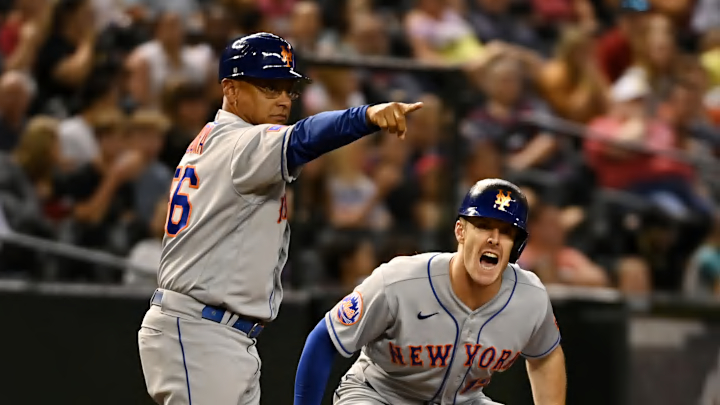The New York Mets come from June ranked among the worst months in team history. The poor performance of the team throughout this month, where they could not win any series, complicates the outlook for qualifying for the postseason.
Likewise, many teams in recent history have achieved a late run in the season, allowing them to reach the playoffs. But managerial decisions regarding the trade deadline become more complicated in a team with a level of payroll and commitment like the Mets in a place in the standing like where they are.
Selling rentals and acquiring talent that will help this season and next is the best approach for the Mets
The Mets' front office has a tough job after their plan for this season fell through. The organization must find where they have not been successful and try to improve as they focus on remaining competitive this year and preparing for 2024.
Two examples of the approach that Billy Eppler and his team have followed have been the trade of Eduardo Escobar and the acquisition of Trevor Gott. Both moves clearly show the objective of this team, to improve the depth of the farm system through trading rentals, while having the advantage of Steve Cohen to buy expensive contracts that allow them to acquire players who can help the team immediately and are controllable until 2024 at least.
Perhaps the best strategy this front office has designed in a long time. The Mets could take advantage of the value of Tommy Pham, David Robertson, or even profiles with club options such as Brooks Raley and Mark Canha, who would return players or prospects who can contribute now or shortly.
Also, thanks to the commitment and financial flexibility that Steve Cohen grants, they can acquire bad contracts tied to relevant and controllable players who can contribute to both offense and pitching to support the team this year. This gives the Mets the best of both worlds, a deep-focused semi-rebuild of the team and their farm system while allowing them to compete for a postseason spot this year.
Although many fans would like to see a radical change in the roster to the point of selling Max Scherzer or Justin Verlander, the truth is that these movements would not make sense. A team with this financial capacity can stay put with these players who are underperforming this year, with the hope of improving in 2024 and becoming a contender team again, while if they were to sell them, they would have to take financial costs without receiving much, since both players are at the lowest value of their careers.
The Mets should toe the line of selling these veterans and continue to shoulder the financial burden of bad contracts with impact players tied to them. With this direction, the team can try to get into the postseason and have a better roster to compete in 2024.
